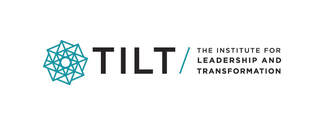Programme focus
To enable organisational consultants, coaches and senior leaders to make sense of, and work with, the dynamics of leadership when leading systemic change.
Why this programme?
Leading change is complex. And lonely. Leaders are confronted with powerful resistances, fears and desires, many of which are unconscious. If these resistances and fears remain unconscious, or are mistakenly diagnosed as originating in individuals rather than being systemic phenomena, the intended change risks being sabotaged, misdirected or rendered sterile. Leaders often sense that they need external assistance in the form of thinking partners, coaches or consultants. However, taking up an effective consulting or coaching role for a leader or leadership team of an organisation in transition is complex and fraught with pitfalls - many of which are incomprehensible if not viewed with a focus on the hidden, sometimes unconscious, drivers of human behaviour and how these play out and are amplified in organisational systems.
Who is this programme for?
The programme is specifically aimed at senior leaders and experienced organisational consultants and coaches who consult to, or work with, leaders and leadership teams of organisations. We are looking for participants representing a diversity of cultural and professional backgrounds, client bases, industries and sectors. Prior training in organizational consulting, group dynamics and/or executive coaching is a prerequisite, plus a willingness and a curiosity to explore more deeply one’s own dynamic contribution to the consulting/coaching process.
Learning outcomes
The programme will assist you to:
Learning methodology
The programme incorporates a variety of components:
Programme co-directors
To enable organisational consultants, coaches and senior leaders to make sense of, and work with, the dynamics of leadership when leading systemic change.
Why this programme?
Leading change is complex. And lonely. Leaders are confronted with powerful resistances, fears and desires, many of which are unconscious. If these resistances and fears remain unconscious, or are mistakenly diagnosed as originating in individuals rather than being systemic phenomena, the intended change risks being sabotaged, misdirected or rendered sterile. Leaders often sense that they need external assistance in the form of thinking partners, coaches or consultants. However, taking up an effective consulting or coaching role for a leader or leadership team of an organisation in transition is complex and fraught with pitfalls - many of which are incomprehensible if not viewed with a focus on the hidden, sometimes unconscious, drivers of human behaviour and how these play out and are amplified in organisational systems.
Who is this programme for?
The programme is specifically aimed at senior leaders and experienced organisational consultants and coaches who consult to, or work with, leaders and leadership teams of organisations. We are looking for participants representing a diversity of cultural and professional backgrounds, client bases, industries and sectors. Prior training in organizational consulting, group dynamics and/or executive coaching is a prerequisite, plus a willingness and a curiosity to explore more deeply one’s own dynamic contribution to the consulting/coaching process.
Learning outcomes
The programme will assist you to:
- Conceptualize and experience organisations as systems;
- Become aware and make sense of the dynamics arising from and affecting the client’s systemic context;
- Explore and work with the dynamics of learning, leadership and change;
- Explore and work with the dynamics of the consulting/coaching relationship as a space for profound learning and change for clients and their institutions;
- Gain insight into your own dynamics and how these manifest and influence your work with clients.
Learning methodology
The programme incorporates a variety of components:
- Theoretical inputs covering the fields of psychoanalysis, open systems theory, group relations theory, organisational theory and complexity theory;
- Learning from experience in the here-and-now of the programme itself;
- Working with dreams as a means of understanding social and organisational systems;
- Action Learning Sets for the application of the learning to the participants’ own practices and/or organisations.
Programme co-directors
- Dr Jean Cooper Leadership Consultant, Founder of The Institute for Leadership and Transformation (TILT), South Africa.
- Dr Mannie Sher Principal Consultant/Researcher and Executive Coach, The Tavistock Institute of Human Relations, UK.
Programme structure
- The programme consists of the following modules:
- A Group Relations Conference (GRC);
- Three elective workshops of which participants must do at least two;
- An assessment module for participants who have completed the GRC plus two of the elective modules.
Modules (To be taken in any order)
Group Relations Conference
This Group Relations Conference provides unique opportunities to study organisations as ever-evolving human systems. It is an accelerated ‘real-time’ learning laboratory in which to study our experience of exercising authority and taking up leadership curiously.
Elective modules (choose two)
To enable board members, senior leaders, executives, managers, professional and technical specialists and anyone involved in organisational or systemic change, to make sense of, and work effectively with, the dynamics of change.
Enabling participants to utilise the consulting or coaching relationship as a containing space for leaders to explore and transform the systemic dynamics affecting their leadership.
Being able to make sense of and effectively respond to the conscious and unconscious dynamics of small groups are essential components of leading, managing and consulting to teams and organisations. This workshop provides opportunities for the in-depth study of the dynamics of small groups through experience in the here-and-now and joint reflection.
Assessment module
To provide opportunities for participants of the Dynamics of Leading and Consulting Programme who have completed the Group Relations Conference plus two elective modules, to synthesise, reflect and apply their insights to practice.
For more information please contact the Programme Administrator, Kirsten Zellmer.






